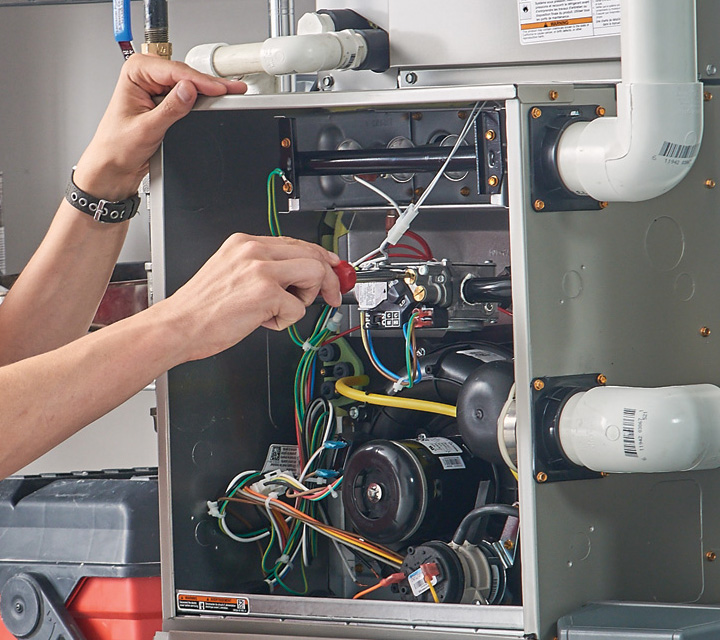How to Improve Power Efficiency With Your Heating And Cooling System and Furnace Upgrades
As power costs proceed to increase, the significance of enhancing power effectiveness through HVAC system and heater upgrades can not be overstated. Evaluating your existing system's efficiency and considering energy-efficient alternatives are crucial initial steps.
Assess Your Existing System
Before embarking on any kind of upgrades, it is important to assess your existing a/c system and heating system to understand their efficiency and efficiency. This preliminary evaluation gives a foundation for recognizing areas that call for enhancement and informs choices regarding possible upgrades. Begin by taking a look at the age of your HVAC system, as out-of-date models might lack modern-day energy-saving functions.

Energy intake records will certainly likewise contribute in gauging your system's functional expenses. By analyzing energy expenses, you can determine patterns of power use and recognize spikes that call for additional examination. Think about performing an expert energy audit to obtain a professional evaluation of your system's efficiency. This detailed examination will guide you in making notified choices around needed upgrades, guaranteeing that your investments in power efficiency produce the desired benefits.
Upgrade to Energy-Efficient Designs
Updating to energy-efficient models is a critical action in enhancing the general efficiency of your HVAC system and furnace. These contemporary devices are designed to consume much less power while delivering ideal home heating and cooling, leading to substantial price savings on utility expenses and a lowered ecological impact.
When thinking about an upgrade, try to find versions that have high Seasonal Energy Performance Ratios (SEER) for cooling and Yearly Gas Usage Efficiency (AFUE) scores for heaters. These rankings show the performance of the systems, with greater numbers showing much better performance. Energy-efficient models typically integrate sophisticated innovations, such as variable-speed motors and smart thermostats, which further boost power cost savings.
Furthermore, numerous energy-efficient a/c systems are furnished with enhanced insulation and much better sealing, which reduce energy loss and enhance indoor comfort. air conditioner repair. While the first financial investment may be greater, the long-lasting cost savings on energy prices and prospective tax rewards for using energy-efficient home appliances can counter this cost considerably

Eventually, updating to energy-efficient versions not only adds to a much more lasting future yet also elevates the comfort and efficiency of your home or company.
Optimize System Settings
To maximize the efficiency of your HVAC system and furnace, it is essential to maximize system settings customized to your details needs. Begin by setting your thermostat to an energy-efficient temperature level.
Make use of programmable or wise thermostats that allow you to set up temperature changes instantly. This ensures your system operates just when required, decreasing power intake. Furthermore, ensure that your system is established to run in the right mode-- home heating in winter season and air conditioning in summertime-- while avoiding the continual fan option unless needed for air circulation.
Take into consideration zoning systems that make it possible for personalized comfort in various locations of your home, further improving efficiency. By fine-tuning these setups, you can attain significant energy cost savings while keeping a comfortable living environment.
Improve Insulation and Sealing
A well-insulated home is crucial to maximizing the effectiveness of your cooling and heating system and heater. Correct insulation reduces the workload on these systems, thereby conserving energy and reducing utility expenses. Begin by assessing your home's insulation in areas such as the attic, walls, and floors. Insulation materials like fiberglass, foam, and cellulose can significantly enhance thermal resistance, assisting to keep conditioned air inside and outdoor air out.
In enhancement to insulation, sealing gaps and cracks is crucial. Pay unique focus to home windows, doors, and any type of penetrations in wall surfaces, such as electric outlets and plumbing components. More hints Weatherstripping and caulking can effectively seal these openings, preventing drafts that endanger your HVAC performance.
Additionally, ensure that air ducts are appropriately protected and sealed. Dripping ducts can lead to significant energy losses, decreasing system efficiency. Utilizing mastic sealant or steel tape to seal air duct joints can improve air flow and performance.
Set Up Normal Maintenance
Normal maintenance of your Heating and cooling system and heating system is necessary for making sure optimum efficiency and long life. Throughout maintenance, a qualified service technician will certainly clean up and change filters, check cooling agent degrees, check ductwork for leakages, and review total system procedure.
It is why not try this out recommended to set up upkeep a minimum of twice a year-- when in the springtime for the air conditioning system and as soon as in the succumb to the furnace. air conditioner repair. Regular upkeep helps preserve regular indoor temperatures, guaranteeing comfort throughout the year. In addition, a well-kept system runs extra efficiently, which can cause recognizable reductions in energy expenses
Ignoring upkeep can lead to reduced efficiency, boosted deterioration, and inevitably, system failing. By focusing on routine solution, house owners can prevent unforeseen malfunctions and ensure their HVAC system and furnace run at peak performance. Buying maintenance is a vital action in improving power performance and producing a more lasting home atmosphere.
Conclusion
Finally, enhancing power effectiveness within HVAC systems and heater upgrades is vital for decreasing power consumption and enhancing general comfort. An organized technique that includes analyzing the current system, purchasing energy-efficient designs, optimizing setups, improving insulation, and organizing regular maintenance can result in substantial benefits. Implementing these websites approaches not only decreases energy costs but additionally contributes to an extra sustainable atmosphere, making it necessary for home owners to prioritize these upgrades.